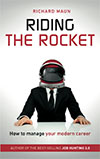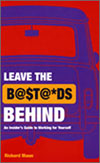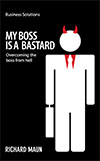better business blog
Tips and stories to add value to you and your organisation

Drawing A Line Under It
One of the interesting facets of my coaching work is how we carry childhood decisions into adulthood. We also carry them into organisations, where the rules are different from our early family experience.
At home, as children, we learned how to stay safe within the environment established by our care givers.
Did we have to be helpful, or get it right all the time? Did we get praise for being busy? Were we told to be seen and not heard?
Families are stressful places. Parents are busy and juggling finances with children, they’ve had no training and are making it up as they go.
(Parent here means any care giver we’ve been raised by).
Generally people mean well and they do the best job they can at home, given their skills and awareness and the influence of their own background.
When we are small people we respond to our care givers by fitting in with them. If we want to play, but get told off for being ‘selfish’ then we might decide to be helpful. The praise we get for this then cements a decision to be helpful and we begin to put others first.
If we score 9 out of 10 for a spelling test and are asked what went wrong…then we may decide to make sure we get 10 the next time. Getting 10 earns us praise, so we continue to push ourselves and fear the telling off a poor result will bring.
We all have our ‘stuff’ that we develop as children and carry into adulthood. Our early years environment nurtures us and shapes us.
And then we step into the world of work, where in essence, their are no rules. Each organisation is different. Leaders may be in charge of us and yet have little skill and less training.
Organisational values can be words on a notice board, rather than codes people live by.
If we don’t perform to the correct standard we can lose our job, or we can be let go because someone high up decides that ‘we are a poor fit’ …how arbitrary is that?
The decisions that kept us safe at home may now work against us. Being too helpful means we don’t get our own work completed. Always aiming for perfection can mean we overwork and ignore the constraints of time and client limited income.
If we are seen and never heard we may never be promoted, as the friendly tap on the shoulder never comes our way.
The trap is that in keeping ourselves safe at work we can be working against our best interests.
As an organisational coach I bump into these limiting behaviours all the time. My work is all about inviting people to draw a line under the past and to act in awareness in the present.
I invite people to make new choices, for example:
To recognise that always being helpful can hide organisational issues with colleagues and departments.
To understand that if a client pays for 3 hours of work, then taking 5 to write a report can cost the organisation more money than it earns.
To accept that it’s worthwhile applying for internal promotions. Even if we don’t get them, we do come to the attention of senior management and raise our profile in a good way.
And fundamentally…
To acknowledge that we have to be the age we are and not the age we were.
It can take time to draw a line. Maybe we have to draw it several times to really feel that it’s there. Perhaps we need the trauma of almost losing our job to realise that we need to change.
We are all different and we all hear and feel things at different levels of intensity.
As a coach I bring intensity into the work space, in a friendly and supportive way, so that people can let go of old behaviours and have fun being successful with new ones.
As a young man I worked hard and yet lacked the sensitivity to listen to my managers, preferring to criticise them, instead of seeking to understand their thought patterns. I lost my job as a result. Several times. Ouch.
However, after the third loss I realised I was the common denominator, which was a wake up call for sure, and I changed my ways.
I stopped being a grumpy teenager at work and became a more responsive and thoughtful person. Had coaching been invented back then, I’m sure I’d have been coached and knocked out the unhelpful behaviours much earlier. However, life was different and people were not invested in, in the way they are now.
So, this week take a pause and think about your behaviour. Are you acting in ways that work against you? What do you really need to draw a line under?
If you have a colleague who is struggling, or you could do with some support yourself, then be proactive and find someone who can work alongside you to draw a line under things.
And if you’d like to talk to me then please get in touch. Skype coaching can be wonderful, so where ever you are in the world, there’s really no distance between us.
Happy line drawing!
Next week: Handling Complaints Brilliantly
e-publishing
Click icon for details


recent posts
browse archive
books
Click cover to view details on Amazon
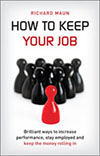
How to Keep Your Job
Brilliant ways to increase performance, stay employed and keep the money rolling in
Published 2011 Marshall Cavendish
208pp
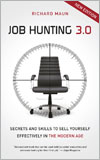
Job Hunting 3.0
Secrets and skills to sell yourself effectively in the Modern Age
Published 2010 Marshall Cavendish
260pp

 RSS
RSS